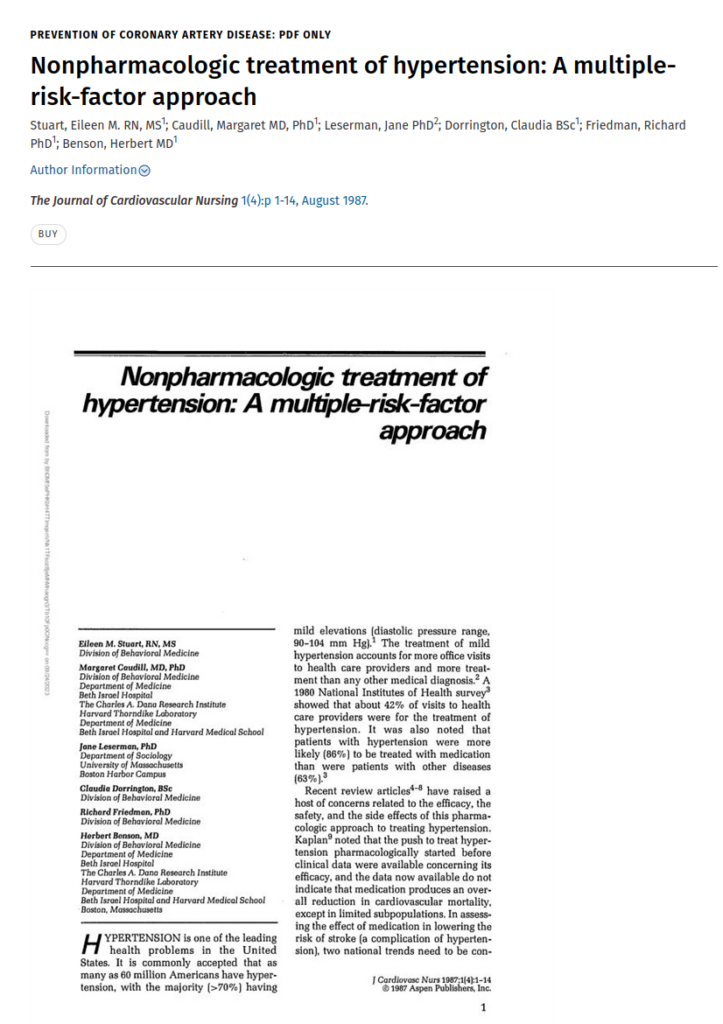Publication
Journal of Cardiovascular Nursing
1(4):p 1-14
Abstract
Hypertension is one of the leading health problems in the United States. It is commonly accepted that as many as 60 million Americans have hypertension, with the majority (>70%) having mild elevations (diastolic pressure range, 90-104 mm Hg). The treatment of hypertension accounts for more office visits to health care providers and more treatment than any other medical diagnosis. A 1980 National Institutes of Health survey showed that about 2% of visits to health care providers were for the treatment of hypertension. It was also noted that patients with hypertension were more likely (86%) to be treated with medication than were patients with other diseases (63%).
Web and Email Links
Related Listings
Journal
Journal of Research and Development in Education
Evaluated self-esteem and locus of control in a group of high school students prior to, during, and following a single academic year. Using a randomized, crossover experimental design, 26 Ss were exposed to either a health curriculum based on elicitation of the relaxation response (RLR) and then a follow-up period, while 24 were assigned to a control health curriculum and then the RLR. Psychological testing was conducted using the Piers-Harris Children's Self Concept Scale and the Now […]
Journal
Annals of the New York Academy of Sciences
A wakeful hypometabolic state accompanies the practice of a relaxational, meditation technique called Transcendental Meditation. The state is characterized by decreased oxygen consumption, carbon dioxide elimination, respiratory rate and minute ventilation, with no change in respiratory quotient. Arterial blood pH and base excess decrease slightly while arterial blood lactate markedly decreases. Systolic, diastolic, and mean arterial blood pressures remain unchanged. The electroenceph […]
Journal
NeuroReport
Previous research indicates that long-term meditation practice is associated with altered resting electroencephalogram patterns, suggestive of long lasting changes in brain activity. We hypothesized that meditation practice might also be associated with changes in the brain's physical structure. Magnetic resonance imaging was used to assess cortical thickness in 20 participants with extensive Insight meditation experience, which involves focused attention to internal experiences. Brai […]

